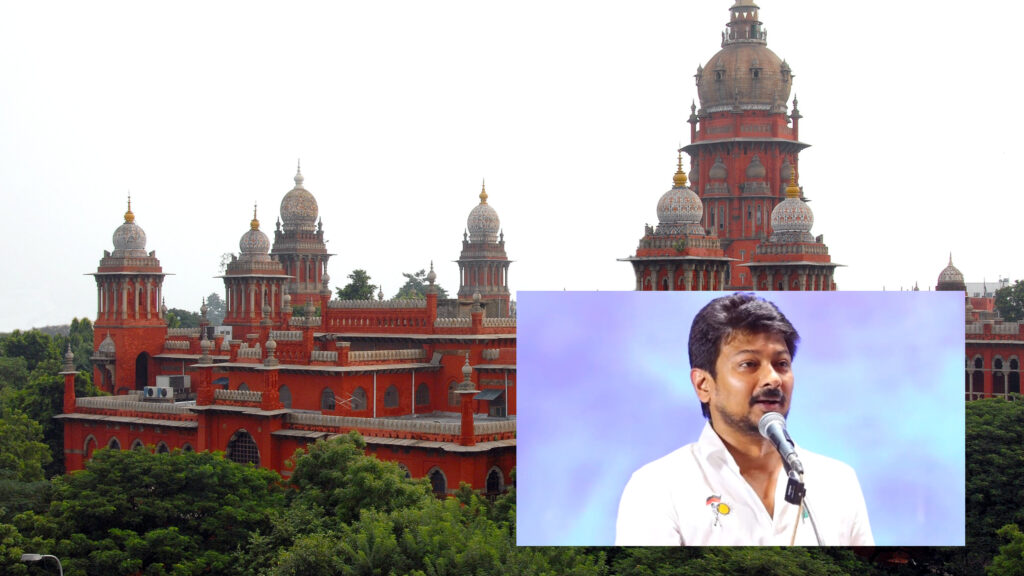
Madras High Court criticises TN minister Stalin, A Raja remarks against Sanatan Dharma; says remarks were “perverse and divisive”
Last Updated on March 7, 2024 by News Desk
Madras High Court on Wednesday criticised Tamil Nadu (TN) Minister for Youth Welfare and Sports Development Udhayanidhi Stalin and Member of Parliament A Raja for their remarks against Sanatan dharm and observed them as “perverse, divisive, contrary to constitutional principles and ideas, and also tantamount to gross dis/misinformation”
Justice Anita Sumanth, while making strong criticism, also said that Sanatan dharma connotes an eternal, perpetual, and universal code of conduct that is uplifting, noble, and virtuous. The restrictive meaning given by the Minister/MP is completely erroneous.
As per the live law in teport, The court was dealing with the writ petition of quo warranto filed against TN minister Udhayanidhi Stalin, HRCE Minister PK Sekarbabu, and member of parliament, A Raja for their remarks against Sanatan Dharma.
Udhayanidhi Stalin, on September 2, 2023, had called for the annihilation of Sanatana Dharma at an event called the ‘Sanatana Abolition Conference’.
He said, “We should not resist mosquitoes, dengue, fever, malaria, and corona, and so should we eradicate them. That is how this Sanatana is. The first thing we need to do is eradicate Sanatana rather than oppose it.”.
Supporting Stalin’s statement, A Raja said, “I find it strange that Udhayanidhi Stalin said it very gently. That it should be eradicated like malaria and dengue. Malaria and dengue don’t have a social stigma that society doesn’t look at as disgusting. To compare Sanatana with abomination, there was once leprosy and HIV,”
Minister Sekar Babu was also present during the event and supported the act.
Therefore, a quo warranto petition was issued against them to show cause under what authority of law they were holding constitutional posts in the Tamil Nadu government after such remarks.
The respondents, Stalin and A. Raja, argued that they were criticising the caste system and did not intend to disrespect Sanatan dharma.
The court condemned the remarks.
It said, “By equating Sanatana Dharma to HIV/AIDS, leprosy, malaria, and corona, the individual respondents have revealed an alarming lack of understanding of Hinduism.”
The court further said that people in power must make efforts to eradicate the division/discrimination based on the caste system.
“This Court agrees unequivocally that there are inequities based on caste present in society today and that they are to be eschewed. However, the origins of the caste system as we know it today are less than a century old…Can one lay the blame for these torturous circumstances entirely on the ancient Varna system? The answer is emphatically in the negative.” The court observed.
However, the court disposed of the writ petition as it contended that cause of action at the time of issuing writ was absent. “The conclusions cannot be stretched so as to justify a writ of quo warranto, as I would then be reading into the Constitution and the provisions of the RP Act, the disqualification of hate speech and the perpetration of mis/disinformation,” the court noted.
Written by Shagun Behal




